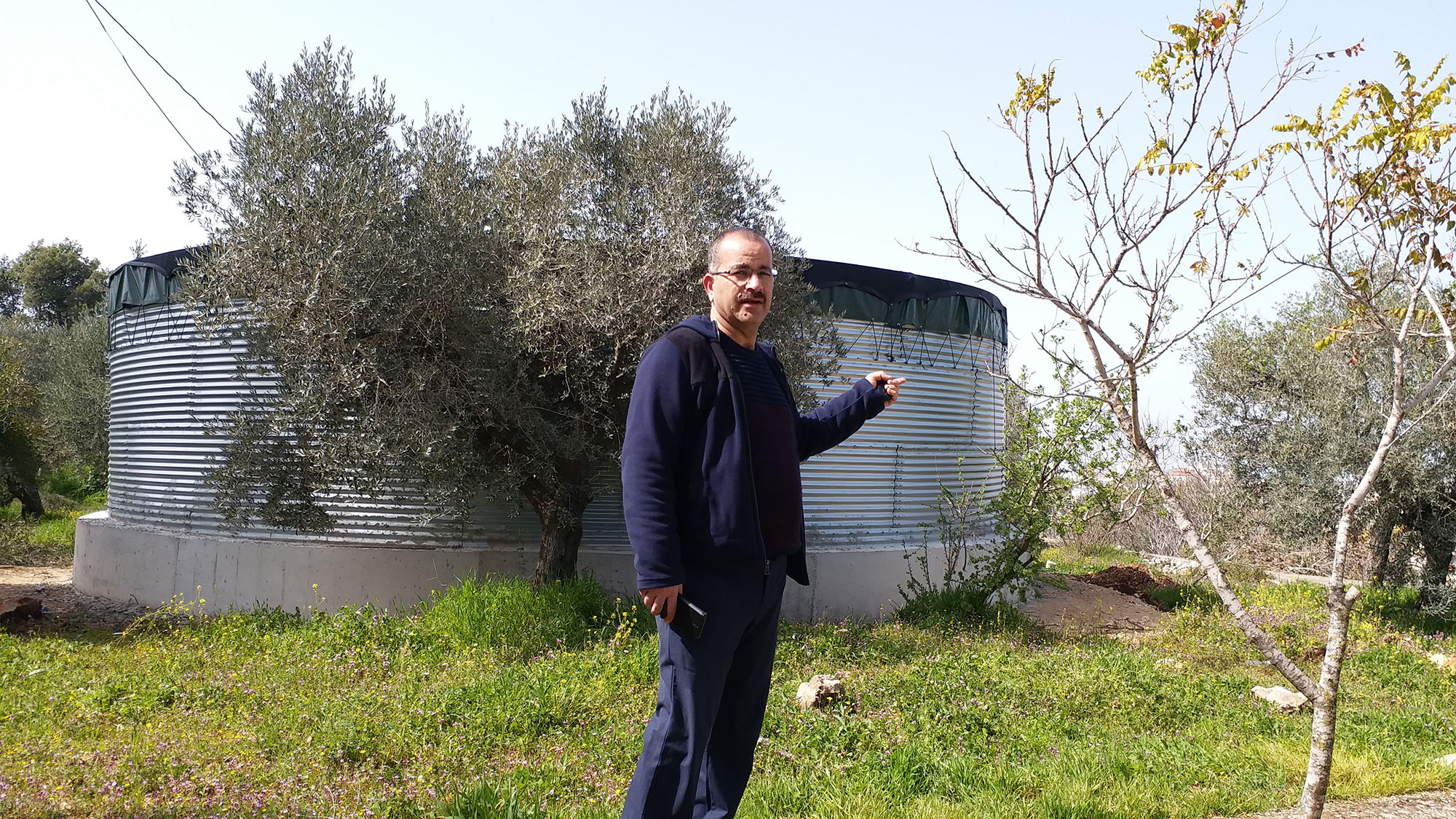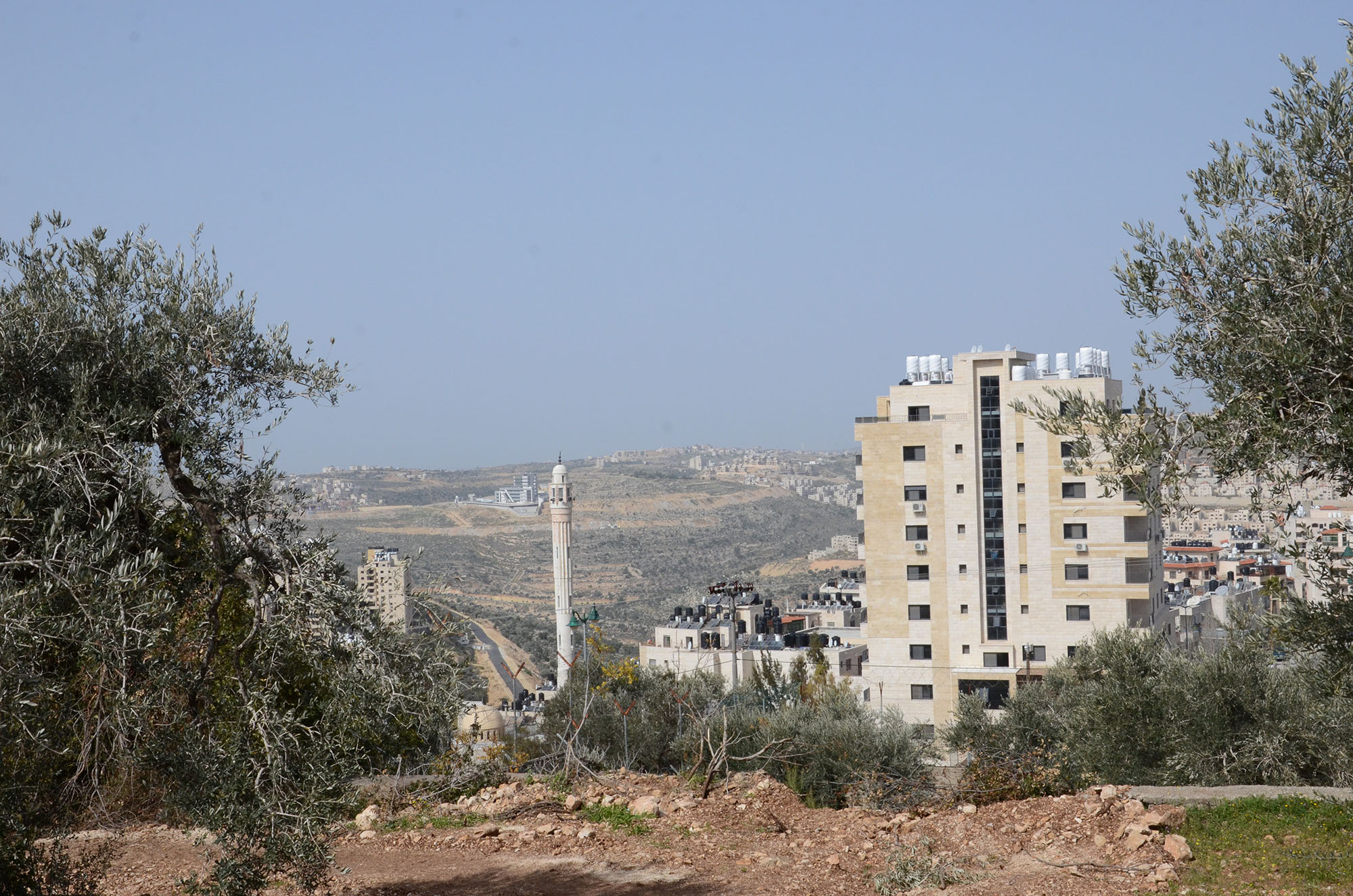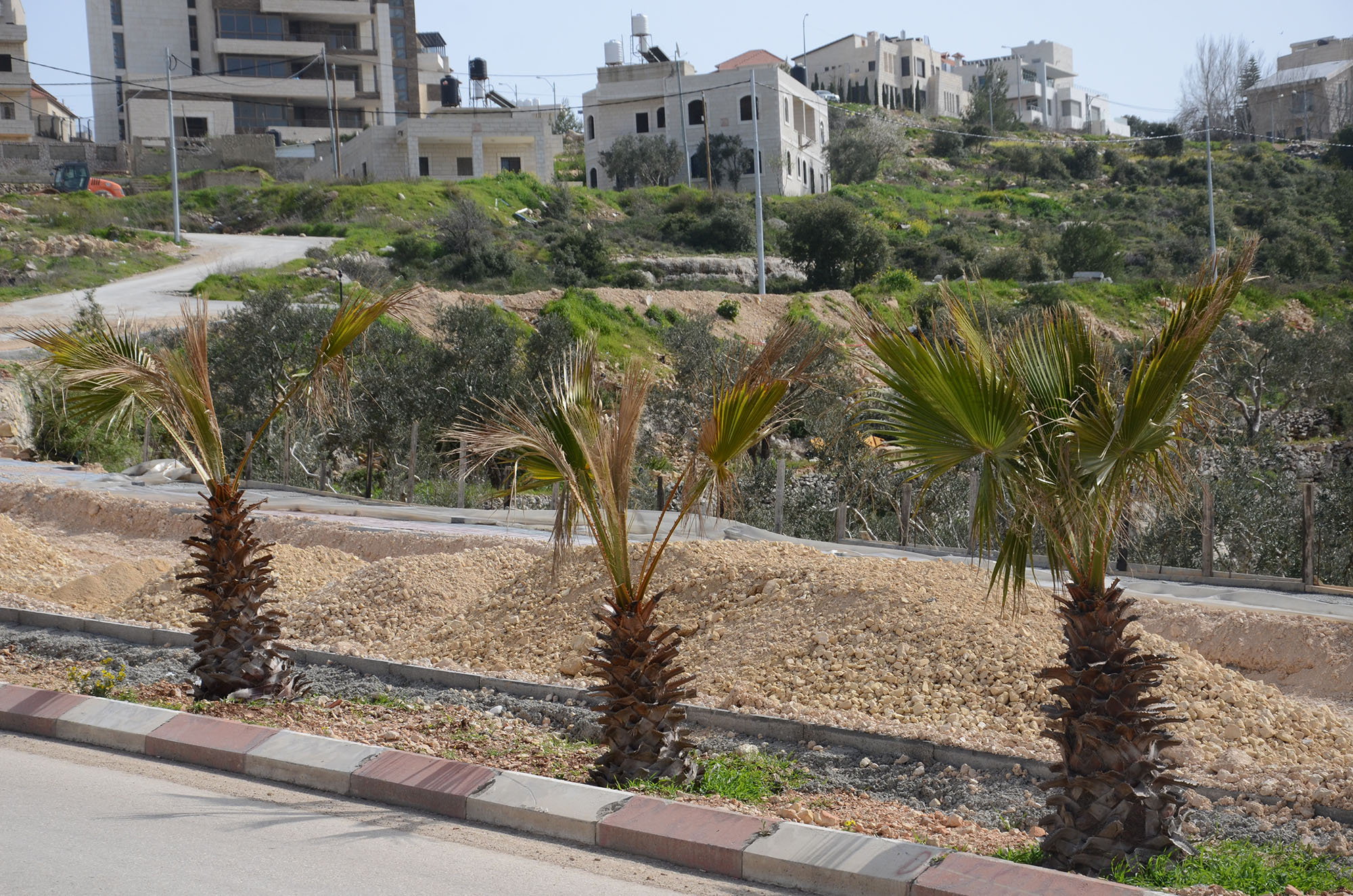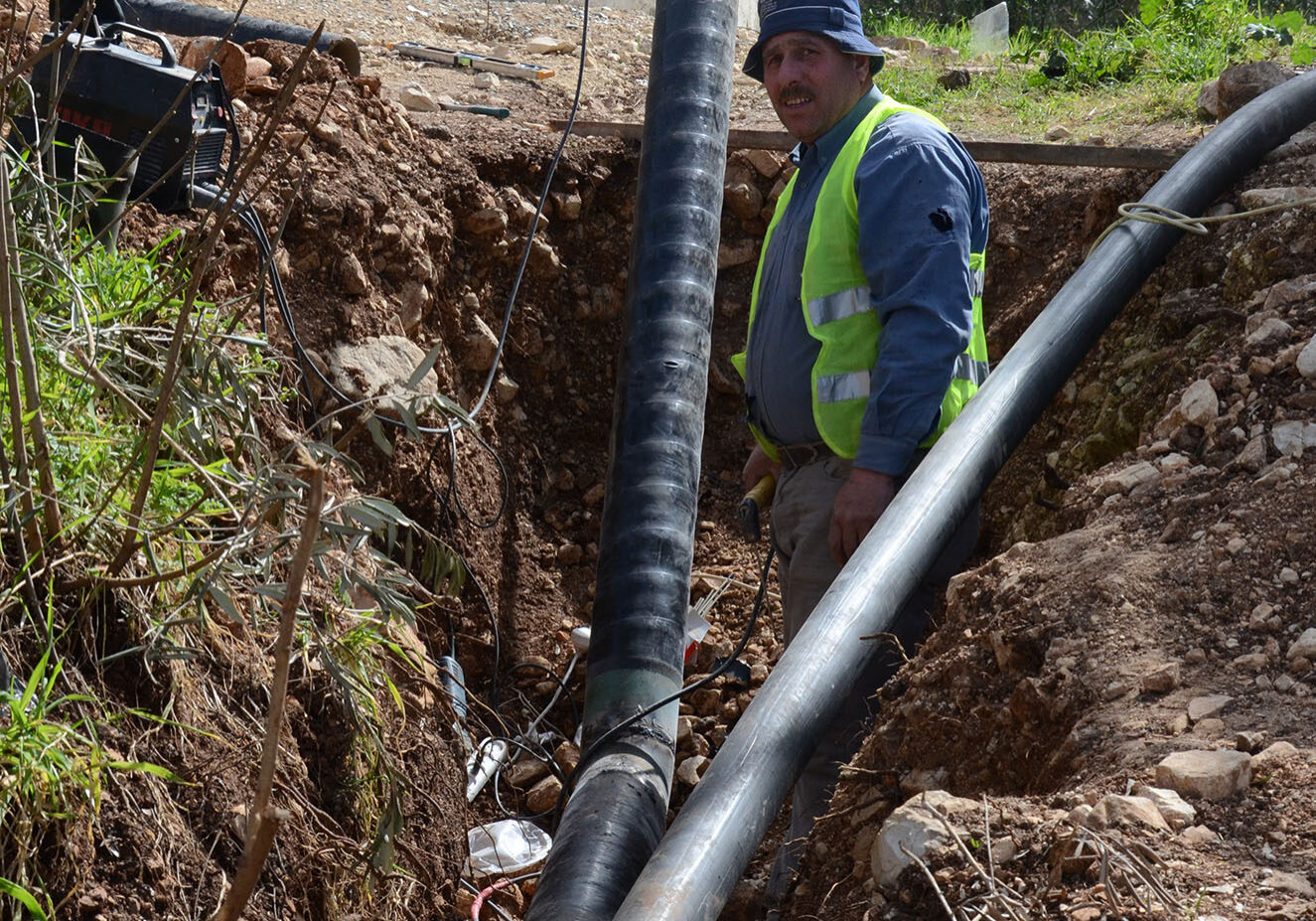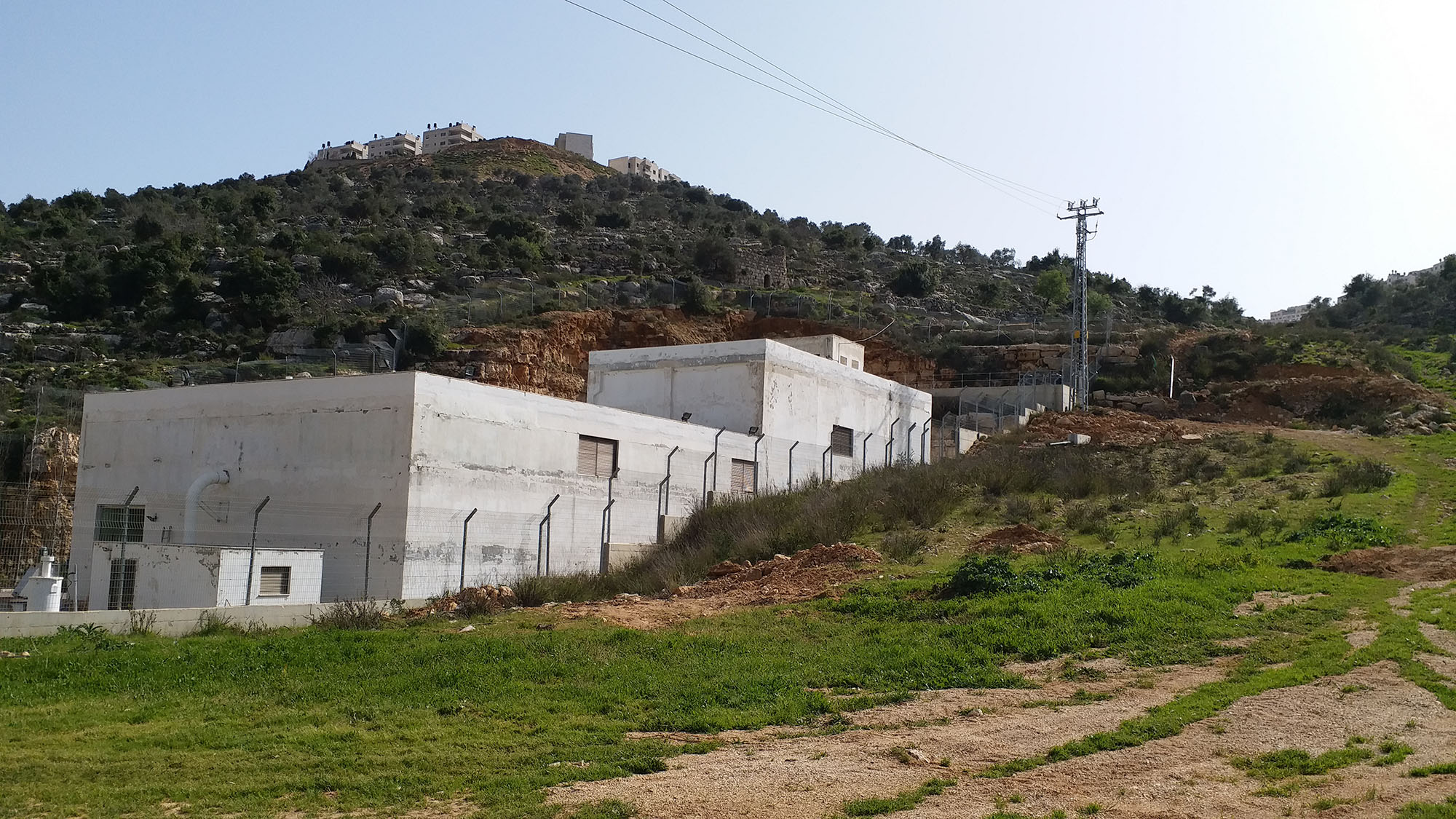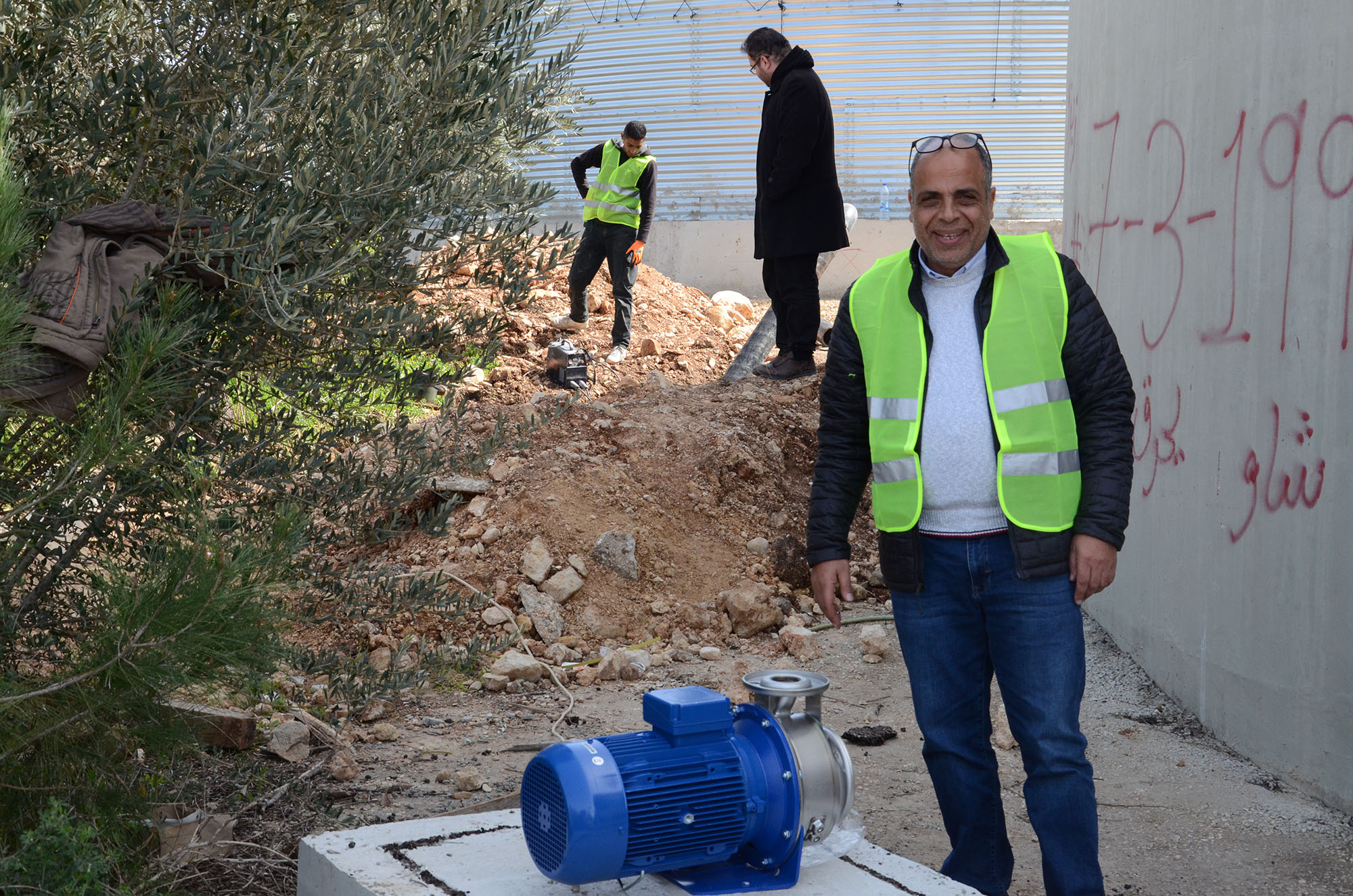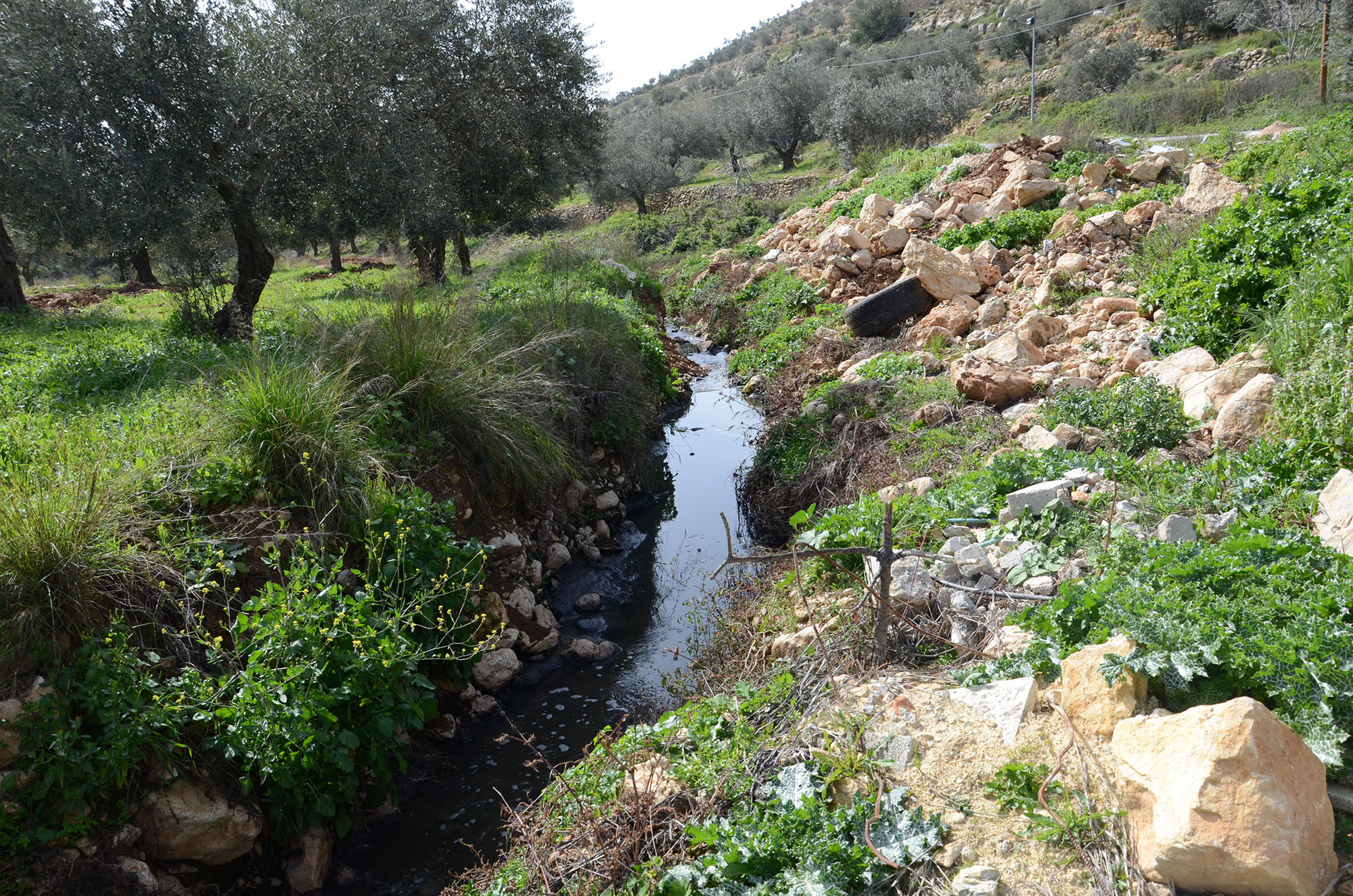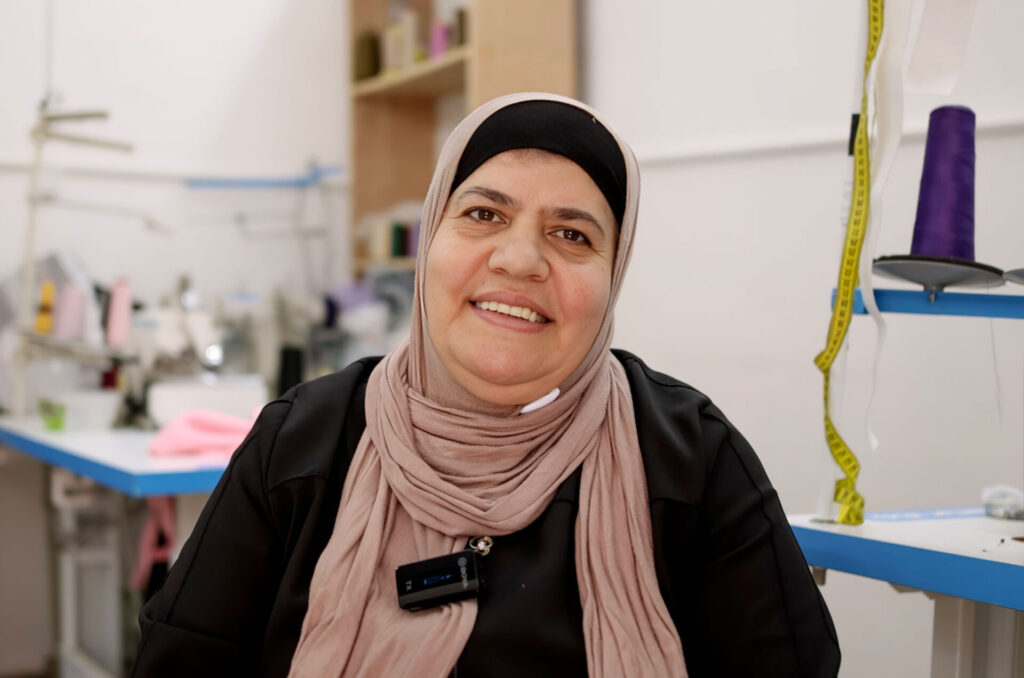Mar, 2019
“Once the project is finished, the lost water in the streams of the valley can be captured and used efficiently for irrigation, construction and firefighting.” - Khaled Gazal, Ramallah municipality engineer
A recent warm day provided respite during a cold winter and a fine opportunity for a drive through the scenic mountains of Ramallah in Palestine's West Bank. The road leads to Ramallah’s main water reservoir, constructed at the edge of the city on high ground to provide sufficient pressure for the operation of gravity-fed irrigation water distribution networks.
“The purpose of this reservoir is to collect treated wastewater for reuse, providing irrigation of gardens, parks, and some home gardens,” explains Anera Agricultural Programs Manager Naser Qadous.
“It can also be used to fill the trucks of firefighters and constructions workers requiring water for civil works projects like road construction. Currently, scarce fresh water is used for such purposes,” he says.
Reclaimed wastewater from the Ramallah Wastewater Treatment Plant is perfect for irrigation and other public works. However, much of the treated water flowing from the plant is currently underutilized. By making this water accessible for public and private use, the project aims to increase the amount of water available in the city and at the same time, conserve scarce potable water for human consumption to combat the West Bank water crisis. It will also serve as a highly visible example of sustainable urban water management in the West Bank, hopefully spurring other communities to undertake similar projects.
Pointing to buildings overlooking olive groves below, Naser explains that the reservoir provides a shortcut to access treated water. “It saves water trucks a long drive up a steep, winding road to reach the treatment plant to fill their tanks,” he says.
The Ramallah project builds on Anera’s experience with the Jenin Water Reuse Project. In addition to irrigating 40 percent of public green areas, 10 demonstration gardens will be utilized to promote the use of reclaimed water for private gardens, conserving fresh water. The project aims to not only implement water reuse but to raise awareness about the benefits to the community of wastewater reuse practices.
The city of Ramallah is expanding dramatically. Although only 39,000 people are registered as residents, the actual number could be three times higher. Most people living in Ramallah are still registered in their original municipalities. The urbanization of Ramallah is drawing ever greater quantities of water and adversely affecting green spaces. Improved water reuse systems will help slow desertification.
On the reservoir site, Sami Mattour, a site engineer, explains the operation of the water reuse system and the need for an urgent response to limited water sources in Ramallah.
“This area experiences water cuts of three to four straight days each week during the summer months. Because potable water must be conserved for human use, there is often little water remaining for other needs like irrigation. With this project, the water is reclaimed so that it doesn’t go to waste,” Sami says.
“We will pump the high quality reclaimed water from the Tireh treatment plant to the elevated site where the reservoir is constructed. Later, during the long dry season, the water will flow by gravity to areas across Ramallah city.”
Ramallah municipality engineer Khaled Gazal says this project will enhance the culture of water reuse and make available some 1,000 cubic meters per day of additional water. He comments, “Once the project is finished, the lost water in the streams of the valley can be captured and used efficiently for irrigation, construction and firefighting.”
“We are eager to expand,” Khaled says, “and build on this project to serve more localities.”
Generous funding for this project comes directly from The Jim Pattison Group. The project is approximately 50 percent complete.
